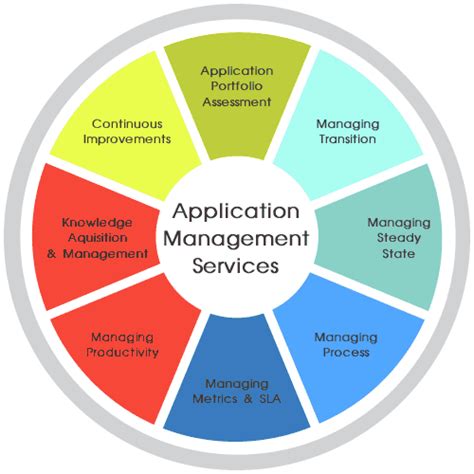The increasing demand for digital transformation and cloud computing has led to a surge in the need for application management services. As a result, the job market for application management professionals is booming, with numerous high-paying job opportunities available. In this article, we will explore the top 5 application management services jobs in demand, their responsibilities, and the required skills.

What is Application Management?
Application management refers to the process of managing and maintaining software applications throughout their lifecycle, from development to deployment and maintenance. It involves ensuring that applications are running smoothly, efficiently, and securely, while also meeting the changing needs of businesses and users.
Top 5 Application Management Services Jobs In Demand
1. Application Manager
An Application Manager is responsible for overseeing the development, deployment, and maintenance of software applications. They work closely with cross-functional teams, including development, quality assurance, and operations, to ensure that applications meet business requirements and are delivered on time.
Responsibilities:
- Manage the application lifecycle, from development to deployment and maintenance
- Collaborate with stakeholders to define application requirements and roadmaps
- Develop and implement application management strategies and plans
- Ensure application quality, security, and compliance
Required Skills:
- Strong understanding of software development life cycles and methodologies
- Excellent project management and leadership skills
- Ability to communicate effectively with technical and non-technical stakeholders
- Knowledge of cloud computing platforms, such as AWS or Azure
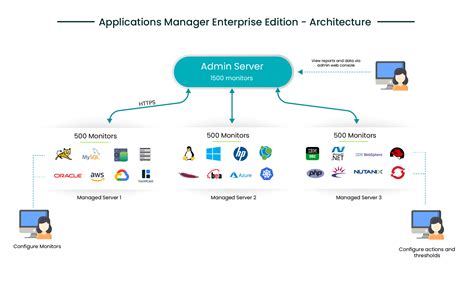
2. DevOps Engineer
A DevOps Engineer is responsible for bridging the gap between development and operations teams by ensuring the smooth operation of software applications. They work on automating processes, improving collaboration, and reducing deployment times.
Responsibilities:
- Design and implement continuous integration and continuous delivery (CI/CD) pipelines
- Develop and maintain scripts and tools for automation and deployment
- Collaborate with development and operations teams to improve collaboration and reduce deployment times
- Ensure application quality, security, and compliance
Required Skills:
- Strong understanding of DevOps principles and practices
- Experience with CI/CD tools, such as Jenkins or GitLab CI/CD
- Knowledge of scripting languages, such as Python or Ruby
- Experience with cloud computing platforms, such as AWS or Azure
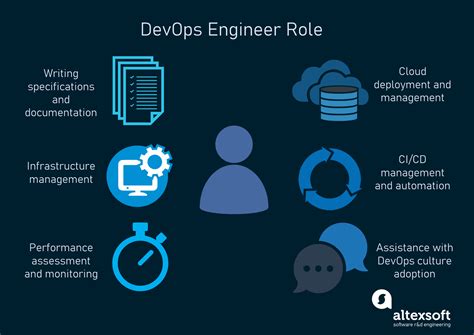
3. Cloud Architect
A Cloud Architect is responsible for designing and building cloud computing architectures that meet business requirements. They work closely with stakeholders to define cloud strategies and ensure the smooth migration of applications to the cloud.
Responsibilities:
- Design and implement cloud computing architectures that meet business requirements
- Collaborate with stakeholders to define cloud strategies and roadmaps
- Ensure cloud security, compliance, and governance
- Develop and implement cloud migration plans
Required Skills:
- Strong understanding of cloud computing platforms, such as AWS or Azure
- Experience with cloud architecture design and implementation
- Knowledge of cloud security, compliance, and governance
- Excellent communication and leadership skills

4. Application Security Specialist
An Application Security Specialist is responsible for ensuring the security and integrity of software applications. They work closely with development teams to identify and mitigate security vulnerabilities and ensure compliance with security regulations.
Responsibilities:
- Identify and mitigate security vulnerabilities in software applications
- Collaborate with development teams to implement secure coding practices
- Develop and implement application security strategies and plans
- Ensure compliance with security regulations and standards
Required Skills:
- Strong understanding of application security principles and practices
- Experience with security testing and vulnerability assessment
- Knowledge of security regulations and standards, such as OWASP or PCI-DSS
- Excellent communication and analytical skills
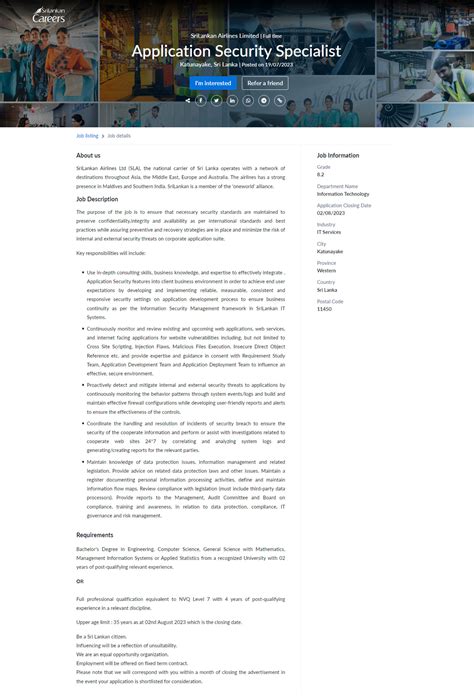
5. IT Service Management Specialist
An IT Service Management Specialist is responsible for ensuring the smooth delivery of IT services to customers. They work closely with stakeholders to define service level agreements, manage service requests, and ensure continuous service improvement.
Responsibilities:
- Define and manage service level agreements (SLAs) with customers
- Collaborate with stakeholders to manage service requests and incidents
- Develop and implement IT service management strategies and plans
- Ensure continuous service improvement and quality
Required Skills:
- Strong understanding of IT service management principles and practices
- Experience with IT service management frameworks, such as ITIL
- Knowledge of service level agreements and service request management
- Excellent communication and analytical skills
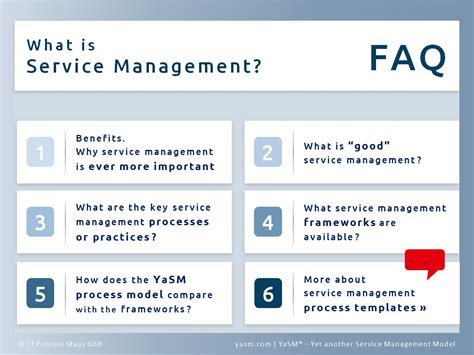
Conclusion
In conclusion, the demand for application management services professionals is on the rise, and these top 5 jobs are in high demand. Whether you're an experienced professional or just starting your career, these jobs offer a range of opportunities for growth, development, and high salaries.



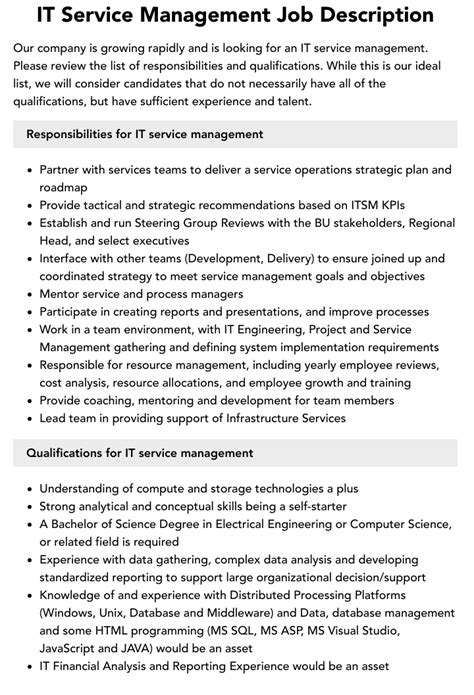

What is application management?
+Application management refers to the process of managing and maintaining software applications throughout their lifecycle, from development to deployment and maintenance.
What are the top 5 application management services jobs in demand?
+The top 5 application management services jobs in demand are Application Manager, DevOps Engineer, Cloud Architect, Application Security Specialist, and IT Service Management Specialist.
What skills are required for application management services jobs?
+The required skills for application management services jobs include strong understanding of software development life cycles, cloud computing platforms, DevOps principles, application security, and IT service management frameworks.
